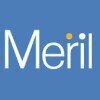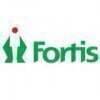Filter interviews by
Vijayalakshmi Health Associate Accountant Interview Questions and Answers
Vijayalakshmi Health Associate Accountant Interview Experiences
1 interview found
I applied via LinkedIn and was interviewed before Jun 2021. There was 1 interview round.
(2 Questions)
- Q1. Experience is more Required
- Q2. Experience most required one
Interview Preparation Tips
Top trending discussions






Interview questions from similar companies

Numerical verbal abstracts and logical reasoning questions.
(2 Questions)
- Q1. Can you tell me about yourself? What are your strengths? Where do you see yourself in five years? Why are you interested in this job?
- Ans.
Experienced accountant with strong analytical skills and a passion for financial management. Goal-oriented and dedicated to continuous learning and growth.
Strengths include attention to detail, problem-solving skills, and proficiency in financial software
In five years, I see myself as a senior accountant or financial manager, leading a team and contributing to the strategic growth of the organization
I am interested in ...
- Q2. What are your weaknesses?
- Ans.
One of my weaknesses is that I can be overly critical of my own work.
I tend to be a perfectionist and can spend too much time on a task to ensure it is flawless
I sometimes struggle with delegating tasks to others because I want to make sure they are done correctly
I am working on improving my time management skills to prioritize tasks more effectively
(3 Questions)
- Q1. Knowledge and skills
- Q2. Confidence and communcation
- Q3. Problem solving skills
Interview Preparation Tips

I applied via Approached by Company and was interviewed in Mar 2024. There was 1 interview round.
(6 Questions)
- Q1. What is financial accounting
- Ans.
Financial accounting is the process of recording, summarizing, and reporting the financial transactions of a business.
Involves recording financial transactions
Summarizing financial data in financial statements like balance sheet and income statement
Reporting financial information to stakeholders like investors and regulators
- Q2. What is the formula of capital
- Ans.
The formula for capital is total assets minus total liabilities.
Capital = Total Assets - Total Liabilities
Total assets include cash, inventory, property, etc.
Total liabilities include debts, loans, accounts payable, etc.
- Q3. What are the 3 types of liabilities
- Ans.
The 3 types of liabilities are current liabilities, non-current liabilities, and contingent liabilities.
Current liabilities are obligations due within one year, such as accounts payable and short-term loans.
Non-current liabilities are obligations due beyond one year, such as long-term loans and bonds payable.
Contingent liabilities are potential obligations that depend on the outcome of future events, such as lawsuits o
- Q4. What are the assets
- Ans.
Assets are resources owned by a company that have economic value and can be used to generate future revenue.
Assets can include cash, accounts receivable, inventory, property, equipment, and investments.
Assets are typically listed on a company's balance sheet and are categorized as current assets or non-current assets.
Current assets are expected to be converted into cash within one year, while non-current assets are lon...
- Q5. What are the golden rules for accounting
- Ans.
The golden rules of accounting are basic principles that guide the process of recording financial transactions.
The golden rules include: Debit the receiver, Credit the giver; Debit what comes in, Credit what goes out; Debit expenses and losses, Credit income and gains.
These rules help ensure that financial transactions are accurately recorded and classified in the accounting system.
For example, when a company receives ...
- Q6. How many types of accounts
- Ans.
There are five main types of accounts: assets, liabilities, equity, revenue, and expenses.
Assets: resources owned by the company (e.g. cash, inventory)
Liabilities: obligations owed by the company (e.g. loans, accounts payable)
Equity: the owner's claim on the company's assets (e.g. common stock)
Revenue: income generated from the company's operations (e.g. sales revenue)
Expenses: costs incurred to generate revenue (e.g.
Interview Preparation Tips

I applied via Referral and was interviewed in Jul 2024. There were 3 interview rounds.
They gave question paper to solve problems
(2 Questions)
- Q1. About accounting
- Q2. About my working responsibility
(1 Question)
- Q1. Salary finalisation
Interview Preparation Tips

Accountant Interview Questions & Answers
Sun Pharmaceutical Industriesposted on 27 Oct 2023

(4 Questions)
- Q1. Define what is a balance sheet?
- Ans.
A balance sheet is a financial statement that provides a snapshot of a company's financial position at a specific point in time.
It shows the company's assets, liabilities, and shareholders' equity.
Assets include cash, accounts receivable, inventory, and property.
Liabilities include loans, accounts payable, and accrued expenses.
Shareholders' equity represents the company's net worth.
The balance sheet follows the formula...
- Q2. Describe the golden rules of Accounts?
- Ans.
The golden rules of Accounts are basic principles that guide the recording of financial transactions.
The first golden rule is the Personal Account rule, which states that debit the receiver and credit the giver.
The second golden rule is the Real Account rule, which states that debit what comes in and credit what goes out.
The third golden rule is the Nominal Account rule, which states that debit all expenses and losses
- Q3. Describe Types of Accounts ?
- Ans.
Types of accounts include assets, liabilities, equity, revenue, and expenses.
Assets: Resources owned by a company, such as cash, inventory, and property.
Liabilities: Debts or obligations owed by a company, such as loans and accounts payable.
Equity: Represents the owner's interest in the company's assets after deducting liabilities.
Revenue: Income generated from the sale of goods or services.
Expenses: Costs incurred in ...
- Q4. Theer Different types of accounts in accounting are Real account, Personal account and Nominal Account. Real account is then classified in two subcategories – Intangible real account, Tangible real account...
(4 Questions)
- Q1. Tell me about yourself.
- Q2. Why do you want to work for our company?
- Q3. Why are you looking for a change?
- Q4. What are your greatest strengths and weaknesses?

I applied via Company Website and was interviewed in Feb 2021. There was 1 interview round.
Interview Questionnaire
1 Question
- Q1. Tell me about cashier your experience?
Interview Preparation Tips

I applied via Walk-in and was interviewed in Dec 2024. There were 2 interview rounds.
(2 Questions)
- Q1. What are document of in this job
- Q2. Job location detail
(2 Questions)
- Q1. How much package in this job
- Q2. Timing of the job

I applied via Naukri.com and was interviewed in Mar 2024. There was 1 interview round.
(5 Questions)
- Q1. What are your strengths
- Ans. My strengths are iam self motivated person and Hard working
- Q2. What are your goals
- Q3. My short term goal is to achieve a good job as senior accountant in aurobindo Pharma company and my long term goal is to achieve a good job in that same company and which build my career and help the organ...
- Q4. What are your qualification
- Ans. I have completed graduation in government degree college autonomous siddipet with the course bachelor of commerce
- Q5. What are your hobbies
- Ans. My hobbies are reading books leasting music playing with my friends
Interview Preparation Tips

Accountant Interview Questions & Answers
Sun Pharmaceutical Industriesposted on 15 Jan 2024
(3 Questions)
- Q1. Job Description
- Q2. Job Responsibility
- Q3. Account and Finance with Insurance
(3 Questions)
- Q1. Job Responsibility
- Q2. Account and Finance
- Q3. All company insurance
Interview Preparation Tips

I applied via Referral and was interviewed before May 2021. There was 1 interview round.
(1 Question)
- Q1. About my work experience of last company
Interview Preparation Tips
Vijayalakshmi Health Interview FAQs
Tell us how to improve this page.
Interview Questions for Popular Designations
- Accountant Interview Questions
- Executive Accountant Interview Questions
- Senior Accountant Interview Questions
- Junior Accountant Interview Questions
- Financial Accountant Interview Questions
- Fund Accountant Interview Questions
- Chartered Accountant Interview Questions
- Accountant Cashier Interview Questions
- Show more
Interview Questions from Similar Companies

Wipro

Sun Pharmaceutical Industries

Aurobindo Pharma

IQVIA
- Home >
- Interviews >
- Vijayalakshmi Health Interview Questions >
- Vijayalakshmi Health Associate Accountant Interview Questions









